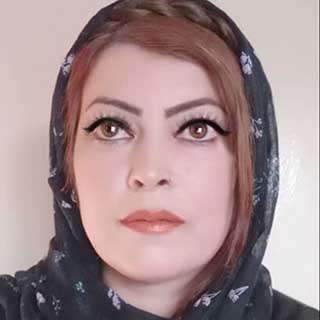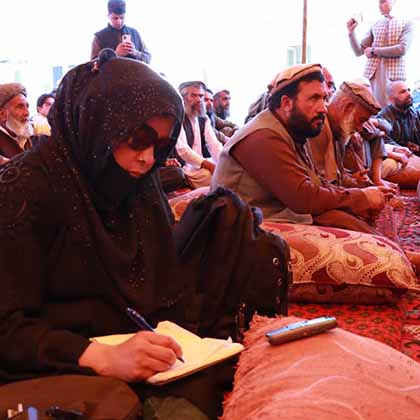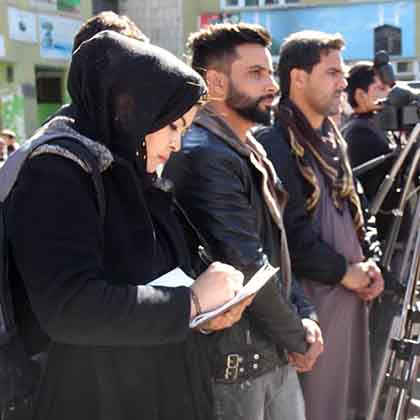
‘If I wasn't committed to my job, I'd have quit this risky and dangerous profession’
Life as a female journalist has always been tough, Habib says, but it’s too important a role to abandon.
I’ve worked as an investigative journalist for more than a decade, first for the (now defunct) Chiragh Daily newspaper and the Institute for War and Peace Reporting.
In 2020, I launched Roydadha, a news and investigative news website. It was the start of the pandemic, and no one wanted to sponsor a new startup. But, through a contact, I was able to get a local bank to advertise.
I had two reporters and one photographer. We covered stories that others ignored, stories that are impactful and can prompt government action.
I was working on an investigative story about street children when Kabul fell. I was hoping it would lead to the children’s rescue, but I was having trouble getting government officials to cooperate.
After the Taliban takeover, all three of my colleagues quit. A lot of the female journalists in Afghanistan, their families did not allow them to return to work. That was the case with my photographer. Others decided to stay home.
I stopped working for a few days in August. But when women took to the streets, I was there to cover the protests. I was happy to see that women were brave and demanding their rights.
I was whipped, and my camera was broken by the Taliban, but I didn’t want to talk about it publicly. I didn’t want to make a big deal about it. This comes with the job.

Meena Habib attends a Taliban meeting with local residents outside Kabul. (Meena Habib)
Journalism is not an easy profession. Journalists are beaten. Journalists are hurt. Journalists face all kinds of problems.
Afghanistan is a traditional society. There is insecurity and a lack of respect for women’s rights. As a woman, you never felt safe going to work. But women who were passionate about their profession, regardless of the circumstance, have continued to work. I’m one of them.
My own family never supported me. They wanted me to quit because they felt journalism was a dangerous profession for a woman. After the Taliban took over, my family asked me to leave the country. They feared the Taliban might cause problems for me.
But because of my passion for my profession and desire to serve my people, especially children, I decided to stay.
I don’t know what’s going to happen. I don’t know if my family will allow me to continue to work.

Meena Habib attends a Taliban press conference in Kabul. (Meena Habib)
Most of my colleagues have left. I don’t think they should have. If we journalists all leave, who will rebuild the country? We’re the bridge between the people and the government.
We all know that journalism is a tough, dangerous profession. It’s especially difficult for a woman to cover a story. No one talks to a female journalist. It is true that the Taliban have imposed restrictions on the media, but we can try to have those restrictions removed.
If a journalist is really passionate and committed to her profession, she can report under any circumstance.
The freedom of expression achievements of the past two decades are very important to me, and I don’t want to lose them. That’s why I continue to report without fear. If I wasn’t committed to my job, I’d have quit this risky and dangerous profession.
Interviews with Habib have been translated and edited for length and clarity.
About this project
Hundreds of Afghan journalists fled after the Taliban takeover last year, but many more chose to stay in spite of the regime’s hostility. Masood Farivar, former chief of VOA’s Afghan Service, interviewed several about what drove them to their decisions, and how their work has changed in a culture of intolerance.
— Jessica Jerreat, VOA Press Freedom Editor
